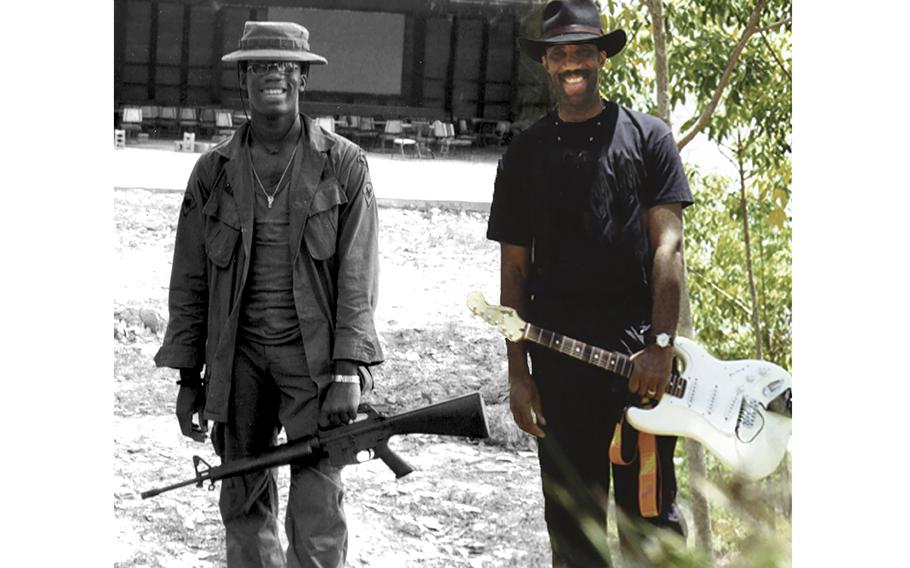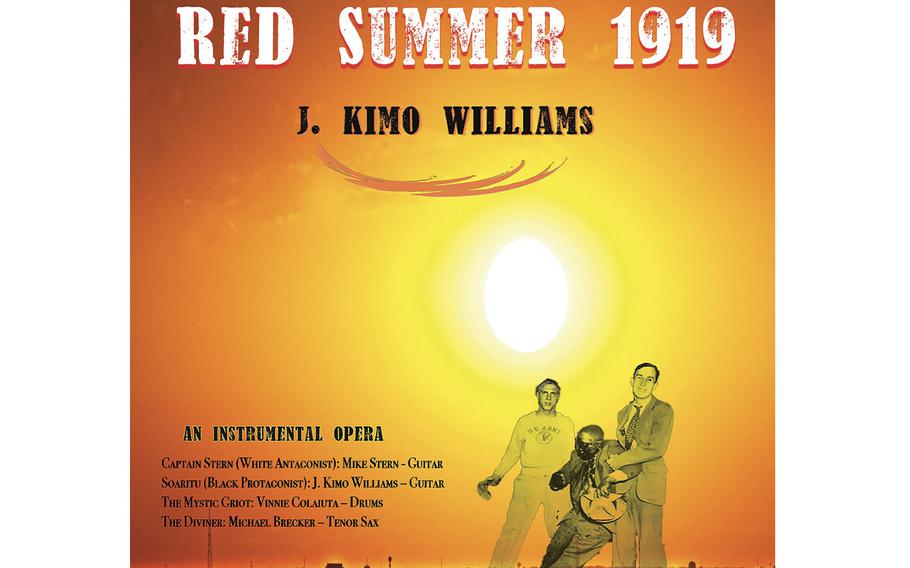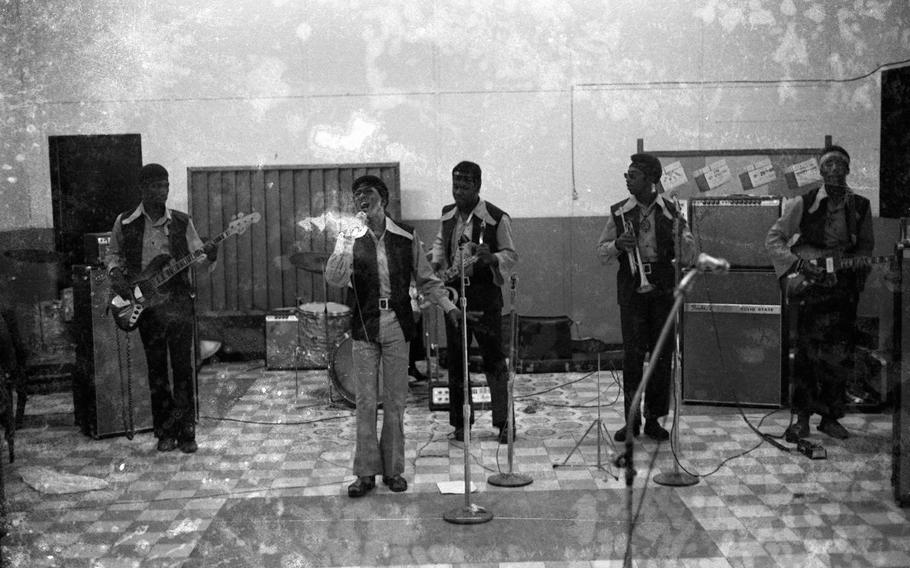
Kimo Williams superimposed two images of himself standing in the same spot in Lai Khe, Vietnam. The first photo was taken of Williams during deployment in October 1970. The second image is from June 1998, when Williams returned while composing “Symphony for the Sons of Nam.” (Provided by J. Kimo Williams)
For veteran J. Kimo Williams, a composer and musician, the military and war are themes that he revisits in a career that spans nearly 50 years — from his tour in Vietnam to his research on discrimination Black veterans experienced after World War I.
“I kept a notebook filled with motifs and themes from melodies I created on a guitar I had bought in Vietnam for $35. Whenever I was inspired, I returned to those themes and reflected on them. They became my muse,” he said.
A self-taught guitarist who discovered his musical interests while deployed in Vietnam, Williams released “Symphony for the Sons of Nam” in 1990, a classical reflection of his 11-month tour of duty. It was followed by his debut album, “War Stories,” also inspired by his recollections.
“When I was traveling in Vietnam with my guitar, it was more dangerous than when I was with the combat engineers in my unit,” said Williams, who formed a rock band with fellow service members that played on the front lines.
On Veterans Day, Williams’ instrumental opera “Red Summer 1919” will start streaming on music platforms that include Spotify, Apple Music and Amazon.

The CD cover for veteran J. Kimo Williams’ new release, “Red Summer 1919,” described as a ‘progressive jazz rock opera’ that uses music instead of words to evoke the experiences of Black veterans after World War I. The instrumental opera is being released on Spotify and Apple Music on Veterans Day. (kimowilliams.com)
“Red Summer 1919” delves into the service of Black soldiers in World War I and discrimination they experienced on returning home.
Williams described “Red Summer 1919” as a progressive jazz-rock opera that tells a story without words.
“I wanted to reconnect with those soldiers in World War I,” he said. “I am hoping people will listen to the music and come away with a greater awareness of their contributions.”
The musical pieces are inspired by accounts of racial tensions that erupted when Black troops came home and entered the work force in large numbers. “Red Summer 1919” is a reference to the violence and uprising that led to riots in U.S. cities.
The word “opera” might be a misnomer to some, as there are no vocalists who sing arias. Williams said his music serves as dialogue to convey stories. Scenes are shaped through rhythms.
“I used music from a progressive jazz rock perspective to create dialogue without words,” he said.
The Black veterans were saying “all we ask of you is respect. That was the expectation of so many who served,’‘ Williams said.
The Black 369th Infantry Regiment, known as the Harlem Hellfighters, were honored with a Fifth Avenue parade in New York City. But afterward, they experienced discrimination that was endemic across the nation, he said.
Williams said he does not see similar themes in the biases that Vietnam veterans experienced on returning home. “We lost a war and were ostracized,” he said.
The son of a career Air Force sergeant, Williams has dedicated much of his adult life to military service, and his music reflects that.

Kimo Williams, on the far right, plays guitar as a member of the Soul Coordinators, a band he put together while serving in Vietnam. (Provided by J. Kimo Williams)
After service in Vietnam, he met his future wife, Carol, a jazz saxophonist, while attending Berklee School of Music in Boston under the GI Bill in 1975.
Williams reenlisted in the Army in 1977 with his wife. The two joined as Army band members.
Williams next attended officer training school, graduating with honors in 1980 at Fort Benning, Ga., now Fort Moore. He later resigned to accept a position as a warrant officer band master for the 85th Division Reserve Army Band in Illinois.
In 1987, Williams ended his military career, leaving the Reserve to accept a full-time teaching position at Columbia College in Chicago. Now retired, he and his wife live in West Virginia.
“Red Summer 1919” is a natural extension of a lifelong dedication to the veterans who served, he said.
“When I look at Veterans Day, I want to bring to the forefront the understanding of sacrifices beyond the war,” Williams said. “I try to speak to the veteran.”
“Beyond the common public perception of veterans as merely fighters or warriors lies a tapestry of individual stories,” he said about “Red Summer 1919.” “By delving into [the individual’s] experience, we are reminded of the richness of each veteran’s story and the need to move beyond monolithic representations.”